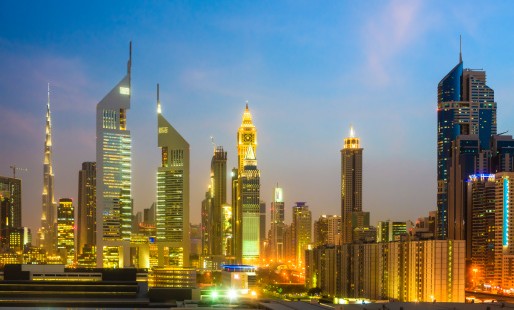Franchising, retail, business

29/09/2014
The city has 34 billionaires with a combined wealth of $79 billion, says new report by Wealth-X and UBS.
Dubai has the most billionaires among cities in the Middle East, according to a new report by Wealth-X and UBS.
With 34 billionaires boasting a combined wealth of $79 billion, the emirate beat Riyadh and Jeddah, which have 20 billionaires each. However, Saudi capital Riyadh was found to have the largest combined billionaire wealth, at $88 billion.
Kuwait City, with 12 billionaires, came fourth on the list, Abu Dhabi gained the fifth spot with 10 billionaires and total wealth of $45 billion and Doha, with nine billionaires, came sixth.
Overall, the report found that 86 per cent and 88 per cent of the Middle East’s billionaires and wealth, respectively, are concentrated in 10 cities across the region.
“This trend – partly caused by limited economic development and opportunities outside the region’s main hubs – demonstrates the growing importance of cities,” the report said.
“Cities like Dubai are becoming increasingly successful in attracting billionaire investment, and this is having a positive impact on the region’s total wealth,” it added.
Most of the billionaires in Dubai were born outside of the UAE.
However, the report also found that the overall number of billionaires in the Middle East had dropped by 1.9 per cent to 154 in 2014, down from 157 in 2013.
The socio-political difficulties in the region have prompted many billionaires to seek citizenship in other countries, it said.
But the remaining billionaires, as well as some of the region’s new billionaires, have seen their total wealth increase. Combined, the region’s super-wealthy had a fortune of $413 billion, up 16.7 per cent from last year.
Diversification of investments across the world helped the region’s billionaires boost their total wealth, the report said.
Work, entrepreneurialism and family businesses were also found to be significant factors behind the growth of the region’s wealth, with only 10 per cent of the region’s billionaires fully inheriting their fortunes.
“As wealth transfers continue to occur, we expect to see an even greater number of billionaires emerge who are actively involved in family businesses, despite having inherited significant fortunes,” the report said.
Overall, the Middle East’s billionaires accounted for over 6.6 per cent of the total number of billionaires in the world, with their wealth contributing to around 5.7 per cent of the global total.
The report also found that only six per cent of the Middle East’s billionaires are female, the smallest share of any other region.
“This illustrates a gap in the long term potential of the region: more female billionaires can emerge. However, various socio-cultural barriers are currently preventing growth in this segment of the billionaire population.
“These types of barriers are common in emerging markets, and illustrate why these regions’ performance is more volatile and mixed than in the more established regions of North America and Europe,” the report said.
Going ahead, the region could expect to see a further rise in wealth and the wealthy.
“With the continued implementation of business friendly regulations, there is potential for further growth in this region’s number of billionaires and their combined wealth,” the report said.